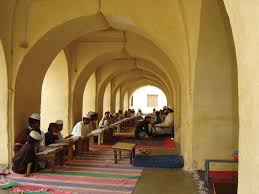Schools of Thought
Quran and
Sunnah are the two main sources of knowledge for the believer. Revisiting
earlier points is an important reminder that your love for Allah and His
Prophet (Muhammad ﷺ) determines how you
approach your life and your adherence to Islam. Many are guilty of interpreting
hadith and certain rulings to suit their understanding. “We hear and we obey”
is overlooked, dismissed.
In an environment
in which nothing changes, the literal understanding and application of rulings
is much easier. However, the world is made up of multitudes of people from
different backgrounds, simply meaning ethnicity, culture and language. With the
expansion of Islam came new situations and challenges. While we can say people
are ultimately the same, there may be some nuances. Referring to the sources of
knowledge in Islam being Quran and Sunnah, the changing landscape created a
need for the interpretation of the main sources as new situations arose. When
everyone agrees, then the solution is easy. There may, though, be instances
where there is no consensus, then what? I am paraphrasing some of the texts of
history. The evolution and development of the Islamic legal system and
jurisprudence is a subject on its own, far beyond a few paragraphs. The point is
that in the first few centuries of Islam, there were certain developments which
led to compilations of books and schools of thought, generally known as a madh-hab.
Beyond that lay
a dangerous beast. Before, we get into that detail, it must be pointed out that
there are four madhahib (pl of madh-hab) prevalent today. However, there were
many more that did not survive for many reasons, not one necessarily better
than the other. Understanding how matters developed during the period in which
these madhahib were given life, you cannot incline to rigidity in any one madhab.
This refers to acting in a way or believing that one is right and the other is
wrong. These schools of thought did not come to change the shari’ah but came to
bring a level of understanding to it. Therefore, the many sins being committed
have not been made permissible by any of these schools of thought. Their basis
is Quran and Sunnah. Thus, the rulings on tabarruj, dress-code, haircuts, dating,
etc have not changed. On the matter of rigidity, sometimes people question you
if you do an act of worship slightly differently and will then continue to
suggest that you have formed a new madhab. The important thing is to learn and,
therefore, if an act or action falls within the framework of the teachings of
Islam, it is acceptable. This needs discussion for better understanding. Stick
to your madhab, but if someone does one permissible act outside of the madhab,
it does not mean that they do it blindly. Overlook or try to understand.
The one who
learns and seeks deeper knowledge will incline to study more in depth and will
seek out proofs so that he/she continues to strive to follow Prophet Muhammad ﷺ in the best way possible. The imams of the
madhabs were firm on all aspects of the deen, not only fiqh.
See next: https://capemuslimspeak.blogspot.com/2025/05/the-line-in-sand-part-8.html
See previous: https://capemuslimspeak.blogspot.com/2025/05/the-line-in-sand-part-6.html




No comments:
Post a Comment
Note: only a member of this blog may post a comment.